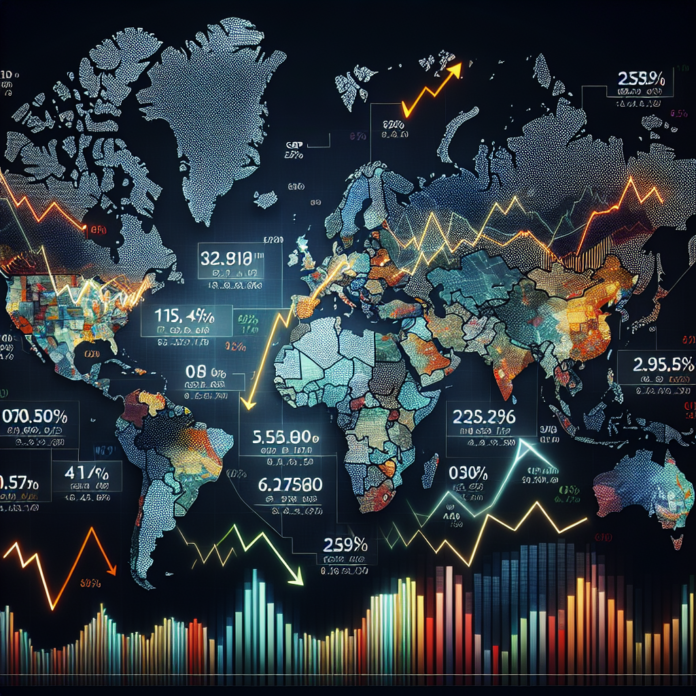The intricate interplay between global economic reports and stock market performance cannot be overstated. Investors and analysts alike keep a keen eye on these economic indicators, as they can significantly influence market sentiment and investment decisions. From GDP figures to employment statistics, let’s delve into how these global economic reports play a pivotal role in the movement of stock markets around the world.
The Power of Economic Indicators
Economic indicators are key stats that provide insights into the economic performance of a country. They can reflect the overall health of an economy, growth trends, and future prospects. These indicators often dictate the ebbs and flows of the stock market. Let’s examine some of the most impactful reports:
- Gross Domestic Product (GDP): GDP is a broad measure of a nation’s overall economic activity. A robust GDP growth rate often signals a prosperous economy, potentially leading to bullish stock market sentiment. Conversely, falling GDP figures can incite a bearish market response. Websites like Trading Economics offer comprehensive datasets for analyzing global GDP trends.
- Employment Statistics: Job creation is a critical indicator of economic health. Strong employment reports typically herald consumer spending increases, bolstering company revenues and, by extension, stock prices. On the other hand, higher unemployment rates can dampen market enthusiasm. The U.S. Bureau of Labor Statistics provides regular updates on employment figures, which are closely monitored by stock market stakeholders.
- Inflation Rates: Inflation metrics, such as the Consumer Price Index (CPI), can have notable effects on market performance. Inflation rates that are too high or too low may lead to adverse economic conditions, worrying investors. Sites like Investopedia offer explanations on how inflation impacts the stock market.
- Interest Rates: Central banks around the world influence interest rates, directly impacting borrowing costs. Decisions about these rates can send shockwaves through the stock market, with lower rates generally fostering more investment and higher stock valuations. The Federal Reserve often serves as a bellwether for such policies.
- Consumer and Business Sentiment Reports: The confidence that consumers and businesses have in the economic outlook can drive stock market trends. Improved sentiment typically correlates with increased spending and investment, uplifting the stock market.
Global Reports and Regional Markets
The globalization of the financial markets means that an economic report in one country can have far-reaching implications. For instance, when China, as the world’s second-largest economy, releases its manufacturing data, not only Asia-pacific markets react but also European and North American markets might experience movement based on the data’s implications for global trade.
Strategic Investor Actions
Investors often use these reports to guide their investment strategies, reallocating assets to mitigate risk or capitalize on potential gains. Tools like Bloomberg offer real-time access to global economic data that informed investors use to drive their decision-making process.
Conclusion
In conclusion, global economic reports are a significant driving force behind stock market performance. Differences in the interpretation of data can fuel market volatility, as investors aim to predict and respond to potential economic shifts. The astute investor, therefore, must have the acumen to understand and anticipate how these reports might sway market sentiment and stock valuations. Keeping abreast with global economic trends is no longer optional in the interconnected financial markets of today; it’s an essential part of any successful investment strategy.




 AGF-B.CO
AGF-B.CO